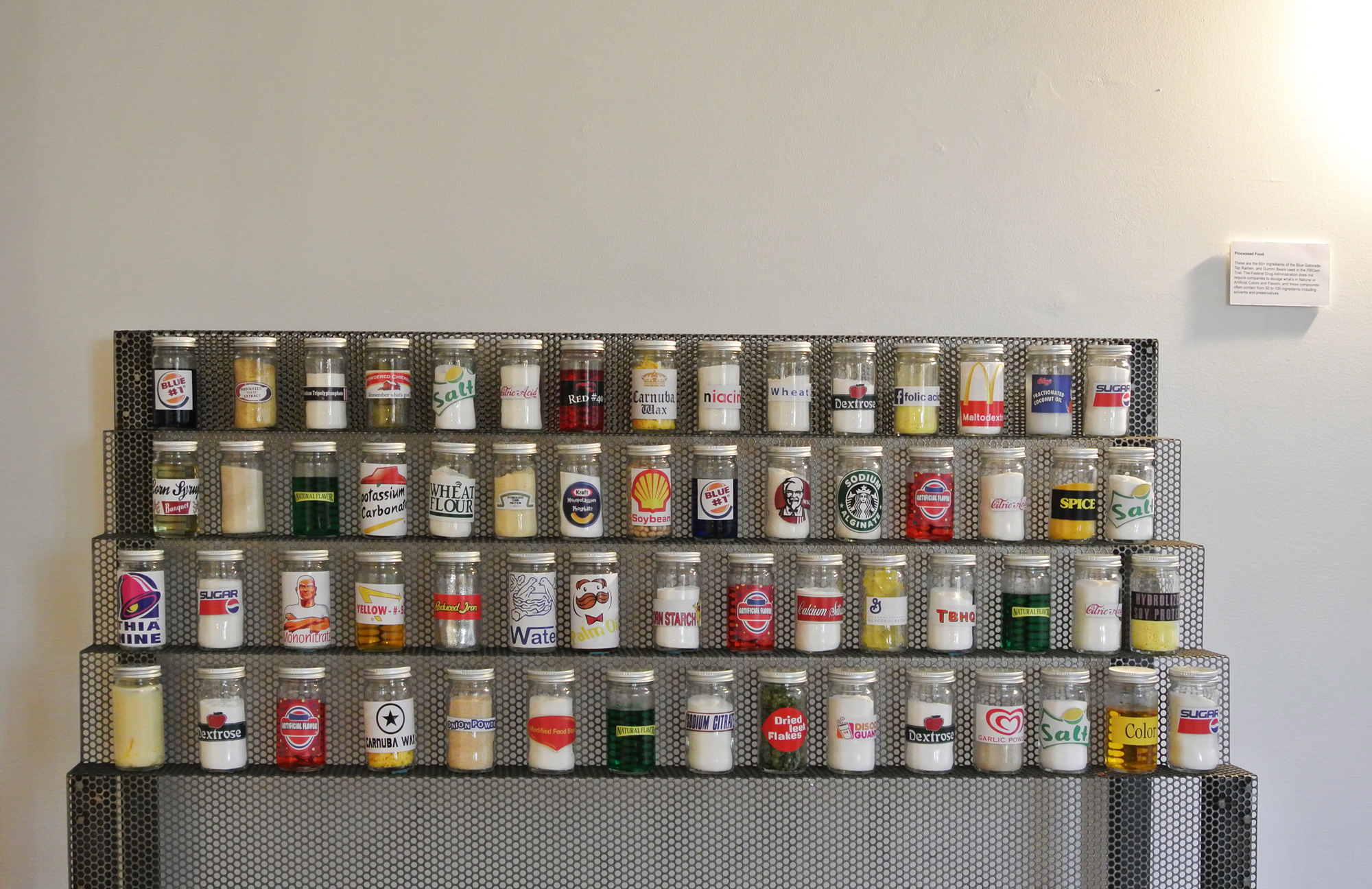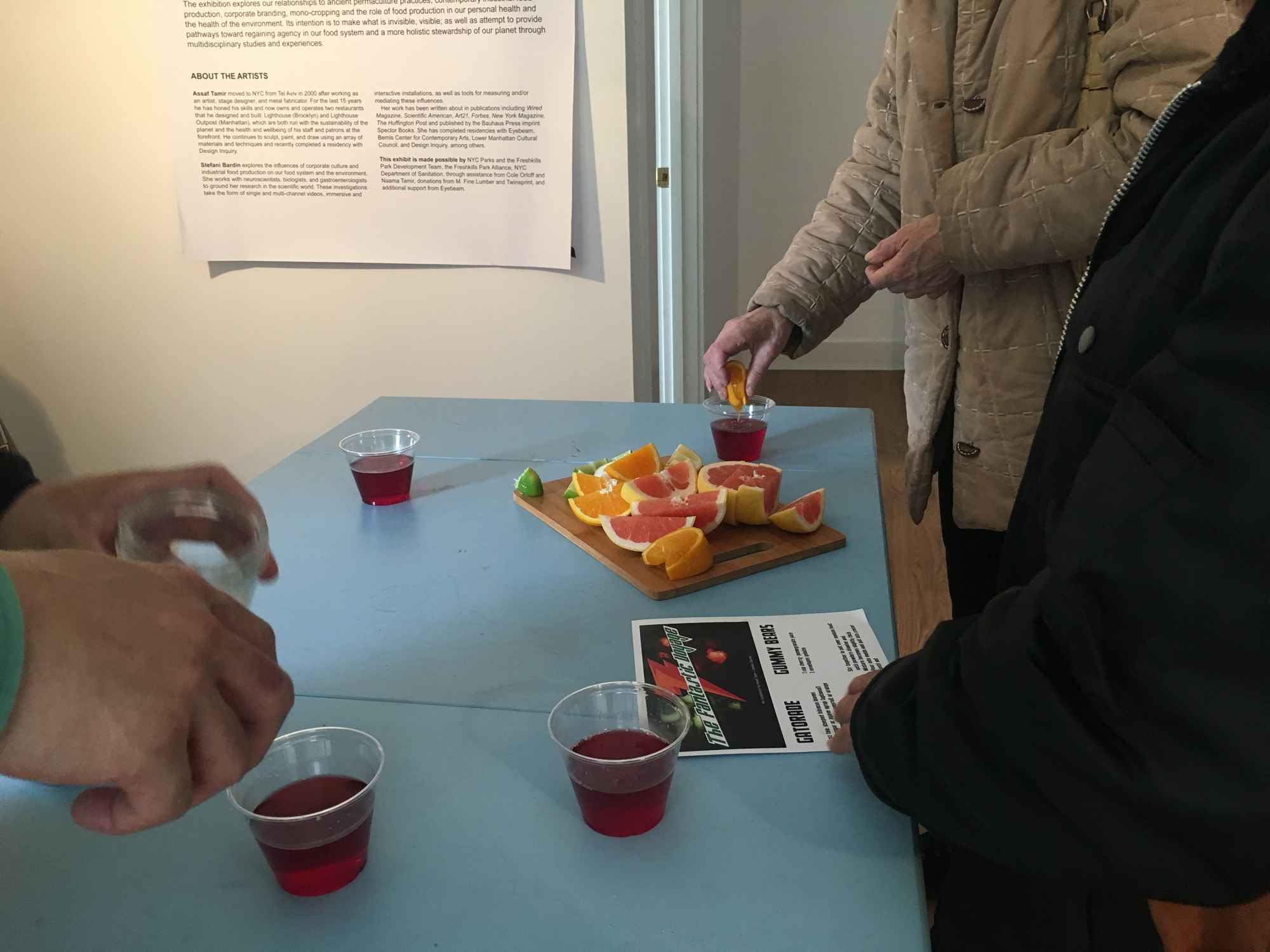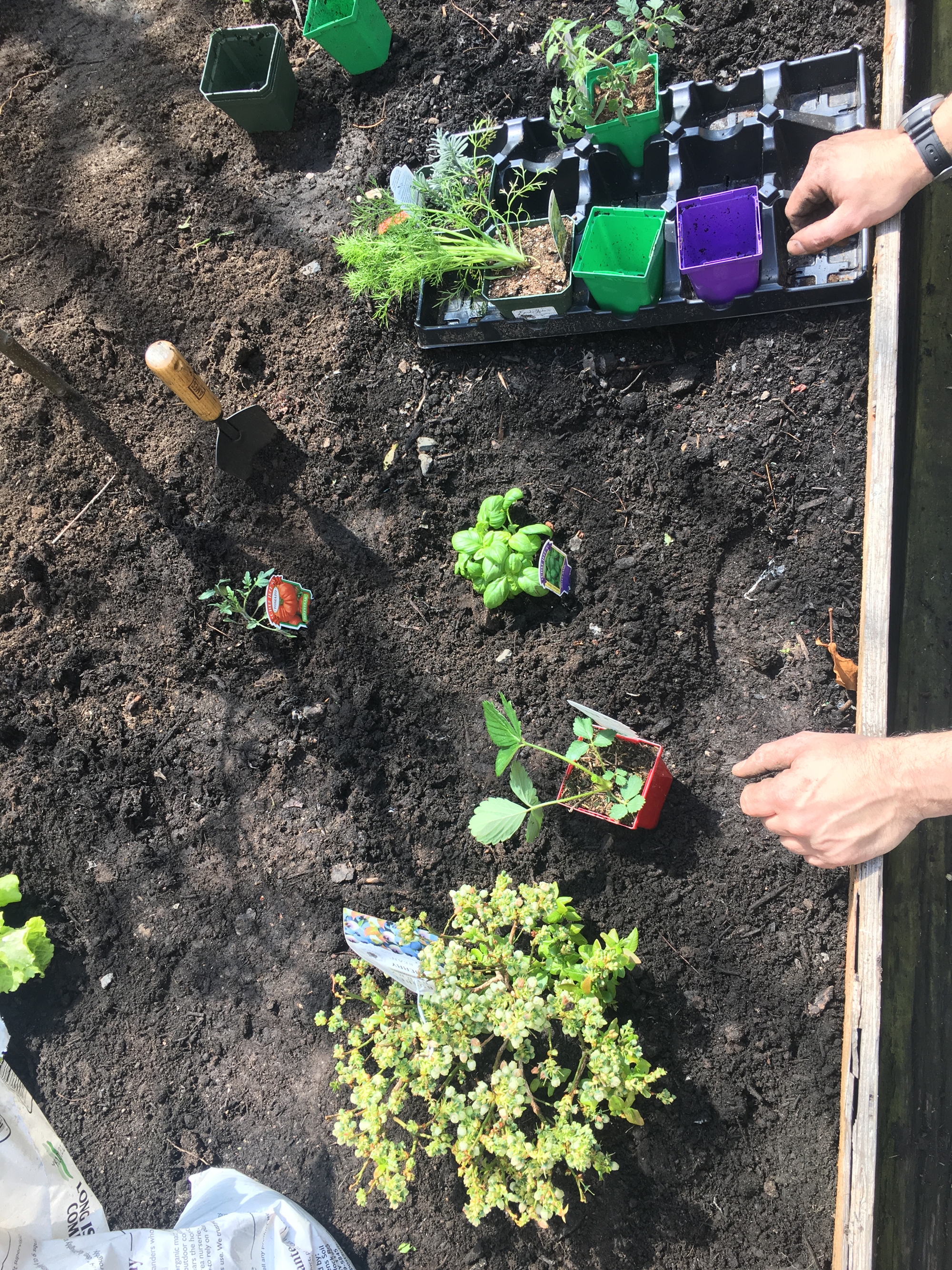





The Fantastic Voyage
January-June 2018
Role: Curator
Artists: Stefani Bardin and Assaf Tamir
What does our gut tell us about our food? The Fantastic Voyage traces the journey of two dramatically different sources of familiar foods through the human body, deconstructs the recipe for each, and visualizes their ingredients.
In 2011 at Massachusetts General Hospital, Bardin and gastroenterologist Dr. Braden Kuo from Harvard University conducted the initial trial on the first human subjects to use the PillCam, an 11 x 26 mm capsule, which has a camera, light emitting diodes, and a transmitter. When swallowed, the device wirelessly transmits images of the gastrointestinal (GI) tract to a receiver worn by the subject over the eight hour battery life of the pill. Mediated through technology and art, the scientific data highlights our own material existence and its relationship with the foods we buy and consume.
This footage gives us a closer-than-ever-before look at our relationship to our own bodies, our relationship with corporate food culture, and the impact of both on our environments. This installation unpacks and decodes these layered systems in both organic and laboratory settings. Outside in the demonstration garden, compost (processed food waste) is the foundational agent to grow new food, the contents of the whole foods meal: oranges, lemons, limes, hibiscus flowers, cherries, wheat, soybeans, scallions, and onions. The garden will grow over time in a natural process, maintained by the artists. Mr. Roost wanders the yard, evading, but representing, the food fate of other chickens. On the shelves inside the gallery, over 60 jars are filled with manufactured ingredients in the processed and packaged meal. Their mostly unrecognizable names are given a physical presence, and their identifiers illuminate the ways in which corporate culture has spread its influence conceptually, nostalgically, and most importantly, literally.
The exhibition explores our relationships to ancient permaculture practices, contemporary industrial food production, corporate branding, mono-cropping and the role of food production in our personal health and the health of the environment. Its intention is to make what is invisible, visible; as well as attempt to provide pathways toward regaining agency in our food system and a more holistic stewardship of our planet through multidisciplinary studies and experiences.
About the Artists
Assaf Tamir moved to NYC from Tel Aviv in 2000 after working as an artist, stage designer, and metal fabricator. For the last 15 years he has honed his skills and now owns and operates two restaurants that he designed and built: Lighthouse (Brooklyn) and Lighthouse Outpost (Manhattan), which are both run with the sustainability of the planet and the health and wellbeing of his staff and patrons at the forefront. He continues to sculpt, paint, and draw using an array of materials and techniques and recently completed a residency with Design Inquiry.
Stefani Bardin explores the influences of corporate culture and industrial food production on our food system and the environment. She works with neuroscientists, biologists, and gastroenterologists to ground her research in the scientific world. These investigations take the form of single and multi-channel videos, immersive and interactive installations, as well as tools for measuring and/or mediating these influences.
Her work has been written about in publications including Wired Magazine, Scientific American, Art21, Forbes, New York Magazine, The Huffington Post and published by the Bauhaus Press imprint Spector Books. Residencies include Eyebeam, Bemis Center for Contemporary Arts, Lower Manhattan Cultural Council, and Design Inquiry.
This exhibit was made possible by NYC Parks and the Freshkills Park Development Team, the Freshkills Park Alliance, NYC Department of Sanitation, design assistance from Cole Orloff and Naama Tamir, donations from M. Fine Lumber, Twinsprint, and additional support from Eyebeam.
Workshop with the artists
Spanning the history of the Green Revolution and the rise of Industrial Food Production this hands-on workshop will use the backdrop of the Fantastic Voyage Exhibition to explore how food has migrated from a source of health and wellness to a co-opted capitalist tool designed to create a dependency on (and some would say addiction to) processed foods and all of its sugar, salt and fat configurations. We’ll then circle back to understanding how we regain a more comprehensive understanding of food for sale versus the food we grow and/or prepare ourselves. Participants will learn how to make Hibiscus Gatorade, Pomegranate-Cherry Gummy Bears as well as natural ways of preserving and preparing food through pickling and fermentation.